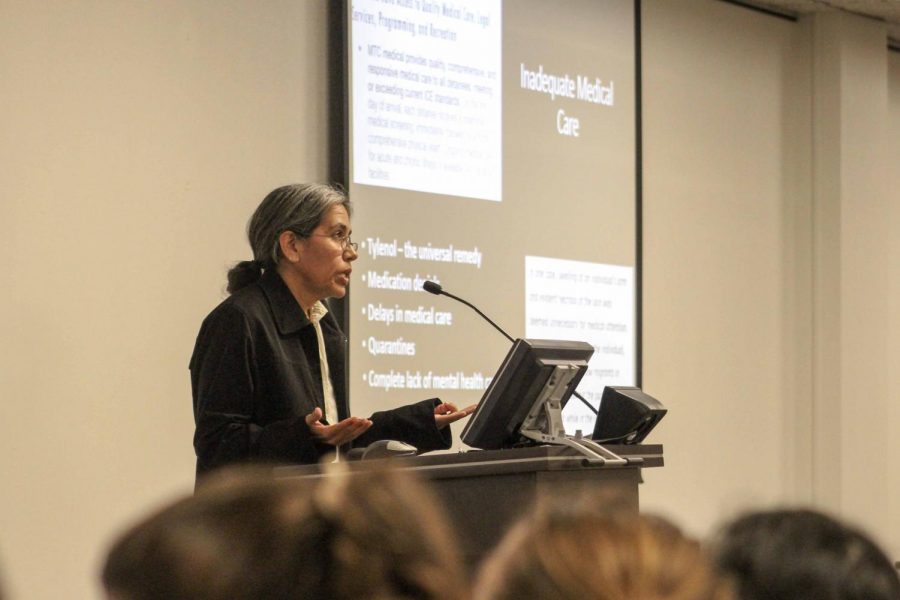Editor’s note: The article was edited Nov. 25 to credit the event’s correct sponsor, the Center of Inter-American and Border Studies at UTEP.
As part of the 2019 Hispanic Heritage Celebration, the Center for Inter-American and Border Studies at the University of Texas at El Paso (UTEP) sponsored a presentation titled “Mental Torture Center: A case study of the Otero County Service Processing Center ICE detention facility” Monday, Oct. 7, at the university library’s Blumberg Auditorium.
Anthropologists Margaret Brown de la Vega and Nathan Craig presented research on ICE detention facilities, which they argue should be abolished.
Using accounts by detainees and official government reports, they compared processing centers like the one in Otero, New Mexico, to prisons.
“Detention is unlike criminal incarceration, yet it can be seen as comparable,” Craig said.
The Otero Processing Center is operated by a private institution called MTC, which stands for Management and Training Corporation. According to its website, MTC is headquartered in Utah and operates 64 facilities worldwide, including the one in Otero. Four are detention facilities.
MTC’s website states that it is “making a difference in the lives of over 100,000 people” by offering rehabilitative programs, medical care and workforce training to those detained in their centers.
However, presenters Brown de la Vega and Craig referred to MTC as standing for “Mental Torture Center,” in which those detained are kept under torture-like conditions.
“Those who’ve been in both prison and detention facilities will tell you immigration detention centers are worse,” Craig said.
Some of the conditions Brown de la Vega and Craig said detainees were kept under were lack of food, inadequate medical care, sanitation issues, harassment by staff, labor exploitation, social isolation and mental anguish.
“[Otero Processing Center] has the capacity to hold 100 people at a time in solitary confinement,” Brown de la Vega said. “That’s probably bigger than their law library.”
According to MTC’s statement about their involvement with ICE, “all detainees … have access to the medical, legal, and personal resources that they need, in addition to voluntary recreation and programming activities.”
About the legal resources available, since immigration courts don’t have public defenders, Brown de la Vega mentioned they are very limited because, “for anyone trying to navigate their legal case themselves, it’s very difficult.”
Translation services, needed in a lot of immigration cases, are not available for detainees, she said. Although proof of competence in the language is the only requirement to act as a translator in immigration hearings, it is still up to the defendant to find a translator themselves.
“It’s sometimes being done telephonically … and that affects translation enormously,” said Josiah Heyman, director of the Center for Inter-American and Border Studies at UTEP.
Jennifer Apodaca, lecturer at UTEP’s college of science, shared her perspective as a visitor to the detention centers.
Her participation shed light in the difficulty that finding translators is for some immigrants, stating she once met a French-speaking person from Africa who could not find a translator.
“I guarantee you the abuse is 10 times worse for them,” Apodaca said.
Marisol Chávez may be reached at [email protected]












